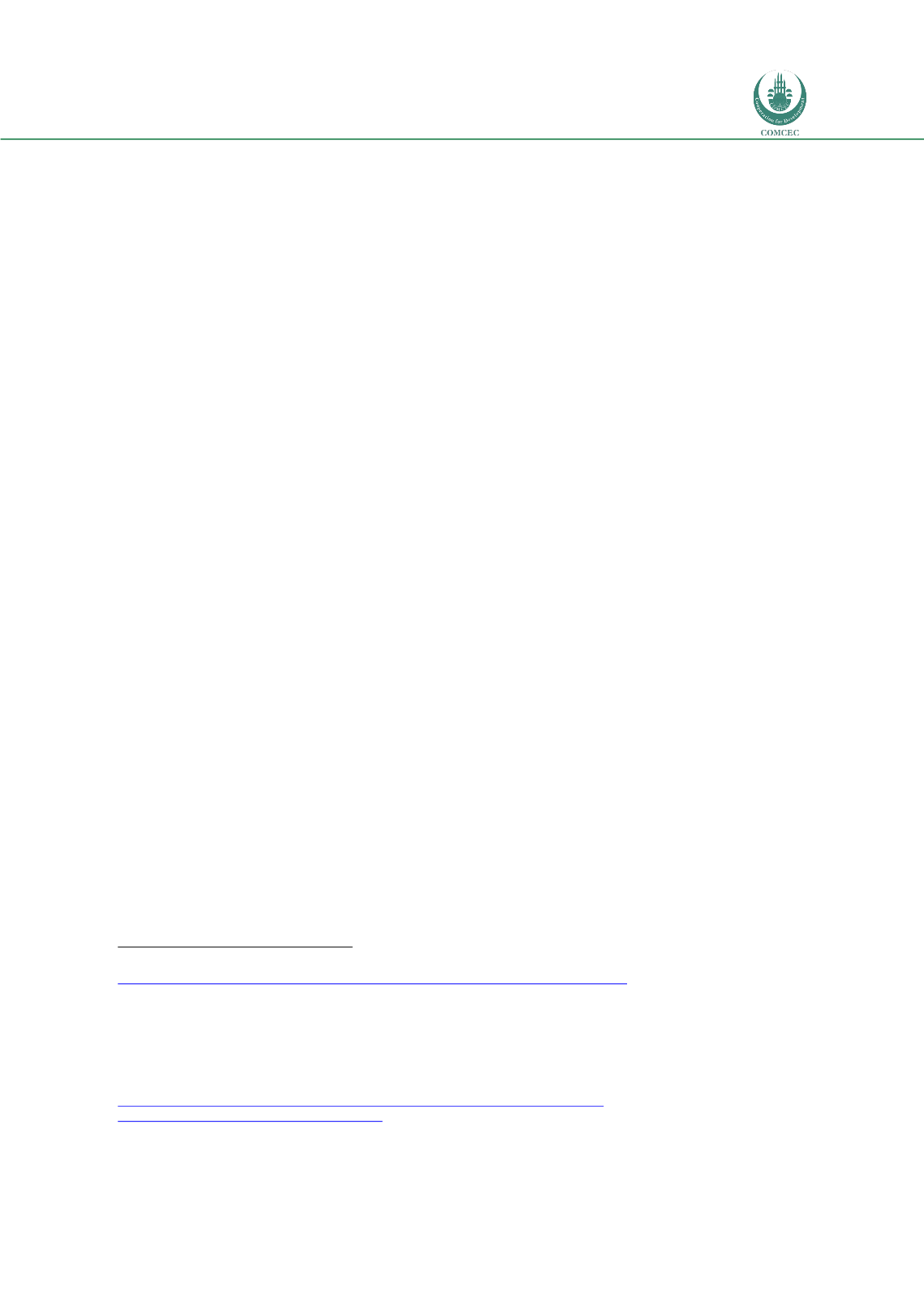

Forced Migration in the OIC Member Countries:
Policy Framework Adopted by Host Countries
75
coherent migration policy. DGMM's broad authority is described in Articles 103 and 104 of the
Law on Foreigners and International Protection: Its purpose is "to implement migration
policies and strategies, ensure coordination among relevant agencies and organizations, and
carry out functions and actions related to the entry, stay and exit of foreigners in Turkey as
well as their removal, international protection, temporary protection, and the protection of
cities of human trafficking." Unsurprisingly, at less than three years old and in the midst of an
unprecedented migration crisis, DGMM has yet to fully develop the capacity to fulfill all of its
many roles and has given priority to some, such as registration of the several categories of
protected persons.
One example of the challenges facing DGMM is seen in its control of the movement of
protection beneficiaries. All protection beneficiaries have their health and education benefits
tied to residence in their province of registration. However, international protection
applicants (non-Syrians) are required to report to the PDMM of their assigned province on a
weekly basis, with failure to do so resulting in an “implicit withdrawal” of their application for
protection.
27
Article 33 of the Temporary Protection Regulation similarly authorizes
provincial governorates to introduce reporting requirements for temporary protection
beneficiaries.
28
To date, however, no such requirements have been introduced due to the
sheer number of Syrians under protection, and overburdening of DGMM Provincial
Directorates with initial registration duties.
29
Similarly, shortages of trained staff contribute to
processing backlogs.
Challenges to ensuring an efficient protection regime have also arisen in the judicial branch of
government. This field is currently experiencing a severe lack of judges and lawyers familiar
with refugee law, since it is not taught in any Turkish law school, and landmark international
asylum decisions still await translation into Turkish.
30
Furthermore, local bar associations
have been tasked with providing free legal aid (
Adli Yardım
) for protection applicants who
cannot hire their own representation, but these associations often lack expertise, and funding
for translators and court fees.
31
The Law on Foreigners and International Protection specifies that the Ministry of the Interior
"may cooperate with the United Nations High Commissioner for Refugees, International
Organization for Migration, and other international organizations and non-governmental
organizations for issues related to the international protection procedures set out in this Part
[of the Law]...." (Article 92). Prior to the Law, UNHCR long had assisted the Turkish National
Police, Department of Foreigners by undertaking status determination for protection
applicants, but is gradually handing this function over to DGMM and its provincial branches as
capacity to take on the function is developed. UNHCR worked closely with the Turkish
authorities to develop the Law and has continued to provide support for its implementation
27
Refugee Rights Turkey,
Country Report: Turkey
(AIDA Asylum Information Database, December 2015), 82,
http://www.asylumineurope.org/sites/default/files/report-download/aida_tr_update.i.pdf .28
Article 71 of the Law on Foreigners and International Protection specifies the reporting requirement; applicants who fail
to fulfill it three times in a row, without being formally excused, will have their applications withdrawn. They are notified at
every stage of the procedure and have access to the administrative review and judicial appeal. Communication from DGMM
comment, received August 1, 2016.
29
Refugee Rights Turkey,
Country Report: Turkey
, 129.
30
Metin Çorabatır (President, İltica ve Göç Araştırmaları Merkezi, Ankara) in conversation with Kathleen Newland, May 2,
2016 ; Orçun Ulusoy, “Turkey as a Safe Third Country?” March 29, 2016, accessed May 5, 2016,
https://www.law.ox.ac.uk/research-subject-groups/centre-criminology/centreborder- criminologies/blog/2016/03/turkey-safe-third .31
Refugee Rights Turkey,
Country Report: Turkey
, 101, 121; Metin Çorabatır in conversation with Kathleen Newland, May 2,
2016.
















